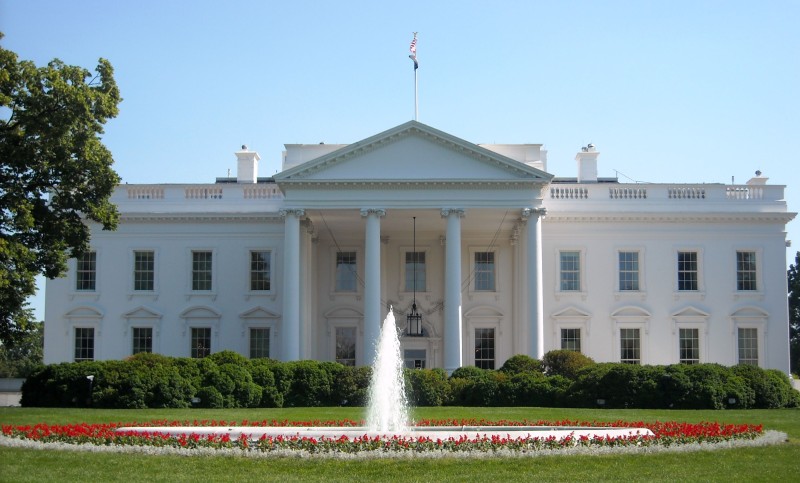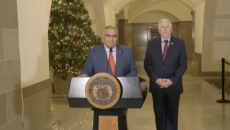With numerous proposed rule changes awaiting further action in Washington, D.C., several are seeing pushback from Missouri officials wary of financial repercussions.
One possible change would require financial institutions to report information on personal and business accounts with the Internal Revenue Service (IRS) if they exceed $600 in incoming or outgoing cash, known as inflow or outflow, respectively.
Missouri Treasurer Scott Fitzpatrick, a Republican candidate for Missouri auditor and incoming vice-chair of the State Financial Officers Foundation, said the change could harm smaller earners and the nation’s banking system.
“These proposals follow a troubling pattern of increasing government overreach on the part of the Biden administration and the Democrats in Congress. Once again, they are not considering the potential impact on small businesses and our small community banks and credit unions — and if they are, then must not care,” Fitzpatrick said. “The impact of these proposals touches millions of Americans — and puts their data privacy at risk. Not only that, it might discourage unbanked Americans from opening bank accounts, which is detrimental to their financial health.”
Fitzpatrick joined 21 other state financial officers on a letter to President Joe Biden and Treasury Secretary Janet Yellen opposing the idea Monday, pointing to concerns over privacy and the risk of cybersecurity breaches.
While much of the outcry has said the IRS would receive individual data, the left-leaning Center for American Progress argued the proposal would see institutions reporting aggregate data rather than individual accounts. The change would bolster tax revenue by ensuring no revenue goes unreported, adding more than $460 billion to the nation’s coffers over the next decade, the Treasury Department estimated.
Financial institutions are required to report data after transactions amounting to $10,000 or more under current law.
“This proposal would create a comprehensive financial account information reporting regime,” the Treasury Department said in a memo on the administration’s revenue proposals published in May. “Financial institutions would report data on financial accounts in an information return. The annual return will report gross inflows and outflows with a breakdown for physical cash, transactions with a foreign account, and transfers to and from another account with the same owner.”
The proposal is part of the American Families Plan, which seeks to increase federal investments in child care, education, paid leave, and other initiatives through increased taxes on high-income taxpayers. Another section would increase the top marginal income tax rate for high earners from 37 percent to 39.6 percent, a change the department said would raise revenues while “increasing the progressivity of the tax system.”
Another part of the bill that has drawn the ire of Missouri officials and agriculture groups is the elimination of the stepped-up basis rule that sees the government adjust appreciated values of a house or stock portfolio when passed down to the next generation as an inheritance. The rule protects heirs of properties under an $11.7 million threshold from paying what is known in agricultural circles as the “death tax” — a tax on the transfer of property after someone’s death.
The administration also proposed an increase to the capital gains tax, which is paid upon the sale of an asset that has increased in value. The administration suggested a top federal rate of nearly 40 percent on long-term gains, a 10 percent leap from where rates stand now.
The Treasury Department memo said the policy disproportionately benefited wealthier taxpayers and encouraged them to avoid the tax through portfolios rather than investing their resources into other economic opportunities. Changing the rule would “reduce economic disparities among Americans” and raise additional revenue, according to the administration.
The proposal has seen pushback from members of Missouri’s congressional delegation and Missouri Farm Bureau President Garrett Hawkins, who argued the change would make it more difficult for farmers to pass their operations along to their families. Congressman Jason Smith also co-sponsored a bill that would eliminate the tax.
The plan includes a myriad of tax reporting reforms and an extension of tax credits for businesses and families. It is working its way through the legislative process on Capitol Hill.

Cameron Gerber studied journalism at Lincoln University. Prior to Lincoln, he earned an associate’s degree from State Fair Community College. Cameron is a native of Eldon, Missouri.
Contact Cameron at cameron@themissouritimes.com.


































